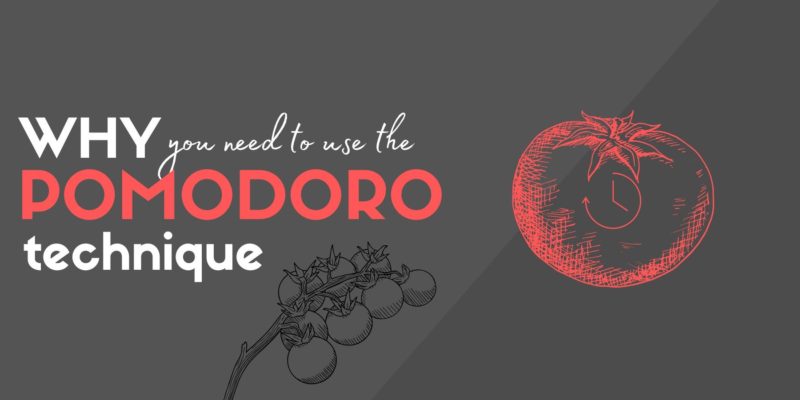- Home
- •
- Blog
- •
- Concentration
- •
- 5 Tips to Improve...
5 Tips to Improve your Concentration
Concentration is, in my opinion, one of the most important creative abilities that we have. It is this ability that enables you to produce work of high quality. Without concentration, we would have all acted like distracted puppies running from task to task without being able to do anything productive. A lot of the most amazing stuff that humans have ever created could only have been achieved by people who had the ability to concentrate on one single thing for a long period of time.
The reason why just a few people are able to create extraordinary work beyond the capabilities of most other people is not necessarily because they are smarter or more creative than the majority. It is more likely due to their ability to sustain their concentration over a long period of time. In fact, this ability to sustain focus over time is something that Einstein, Leonardo Da Vinci and a lot of other geniuses had in common.
If you want to join the ranks of the high achievers in the world, these five tips below will be the perfect place to start.
1. Aim for 100% Focus with Short Intervals
This is a fantastic technique or exercise to start out with that will improve your concentration over time. When you sit down to work on something, aim to be 100% focused on that one thing. It's important that you go wholeheartedly in to concentrate on something you are going to work on instead of half-concentrating.
To achieve this, it's important that you stay focused on your task for only a short amount of time. Increase the length of the session bit by bit over a period of time. If you deem yourself as someone who is easily distracted, I would recommend starting with 5 minutes. After this, increase the time by 1 minute every third day or so. 5 minutes at a time might sound too little. But you might get surprised by how long it feels to think about only one single thing for a full 5 minutes. When you try this technique, you might notice how often your mind starts to wander and start thinking about other things. It's very likely that you will have to re-focus several times during that short session because your mind will automatically drift off.
I can't stress enough the importance of starting out with short 5 minute sessions. If you try to stay 100% concentrated on something for 30 minutes in one go (that means 30 minutes where the aim is to not think about anything else at all but the task at hand) you are likely to just give up on this whole technique because you believe it didn't work. This technique is all about increasing your attention span by fully concentrating on something in short intervals and then increase the length of the intervals when it gets easier to concentrate. Stick to this for a few days, and you should notice a difference in your attention span. Use a timer with an alarm so that you don't have to constantly look at a clock to keep track of the time.
Here is an example of what a 60 min schedule might look like:
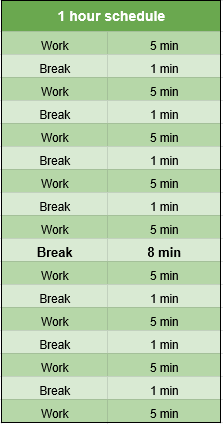
After 5 minutes of deep concentration, have a short break and then do another 5 minute session. The length of your break should reflect the length of your session. If you work for 5 minutes, it wouldn't make sense to take a 5 minute break. Otherwise, you could have just stuck with half-concentrating for a full 10 minutes. 1 minute or less is enough if you're doing 5 minute intervals.
If you feel like you are ready to start the next 5 minute session before the 1 minute break session is over, please go ahead. The 1 minute break is there just to give you some breathing room before the next 5 minute session.
If you manage to have a razor sharp level of focus for 5 minutes at a time with short breaks in between, you can accomplish a lot more in one hour than if you just half-concentrate for a full two hours. Half-concentrating is usually a very unproductive way of working. This is because so much time is spent procrastinating and thinking about other things.
If you find yourself getting continuously distracted over those 5 minute intervals, shorten the session to 3 minutes, or even 1 minute. If you struggle, it's just a sign that your mind is not used to thinking about only one thing for a longer period of time. And I don't blame you. This can be really difficult today with the internet and social media. Since concentration is a skill that is declining today, it is even more important that we practise it. With such short sessions of focus, you will get a lot of practise, and your brain will get fairly quickly used to concentrating more.
Working with such a strict schedule is not always possible. But remember - this is an exercise I have made for you with the purpose of increasing your attention span.
2. Pay Attention to What Distracts You
When you have done the exercise I explained in the previous step for a while and increased your attention span, it's now time to think about how and why you get distracted, and about what distracts you. If you want to stop being an easily distracted person and finally take control over your productivity, it's crucial to be aware of exactly what distracts you and why it breaks up your concentration.
When you get distracted, it's often due to a very small change in your mind that is difficult to notice. If you are sensitive enough and try to pinpoint exactly what has distracted you, you will be able to eliminate the factors or thoughts that distract. This is the first step in overcoming them. More importantly, you will get to know yourself very well. This is important not only for training your concentration skills but for a lot of other mental skills such as memory, speed-reading and learning.
Improving your concentration and developing yourself as a person is ultimately a subjective journey. I can give you powerful tools to get you started on this journey, but it's up to you to find out what personally distracts you and eliminate those things from your life.
If you need help to figure out exactly what distracts you, I will soon publish an in-depth article about this.
3. Become Good at Concentrating in Noisy Places
You will probably not always have the luxury of doing all your work in a quiet space. There are lots of situations you can take advantage of to be productive, such as on the train or bus home from work/school, waiting rooms, and other rooms you are stuck in where other people are chatting. I used to be very good at convincing myself that I couldn't concentrate at all if there were people talking or being noisy around me. It wasn't until I started to understand that concentration is a skill that can be trained that I got less and less distracted by things going on around me. It felt really empowering once I overcame this obstacle that prevented me from being productive unless I was sitting at my desk in my bedroom at home.
If you think you can take advantage of being able to concentrate in noisy places, my advice to you would be to practise the interval technique I explained above in a space where there are other people. Notice how it feels and try to pinpoint exactly what it is that distracts you. When the same type of distraction happens next time, try to ignore it as if it's just background noise. It might take several attempts before you are able to ignore the noise around you, but if you're consistent with this, you will soon be able to be productive wherever you are. I promise you - It really feels like a superpower when you're able to be productive in any type of space with a razor-sharp concentration that just won't budge.
Another reason why you should practise concentrating in slightly noisy places
If you get too used to only working with complete silence around you, you might become overly sensitive to noise, and then any minuscule sound that you hear can break your concentration. Avoid this from happening to you!
You don't always have access to a quiet room where you can work in peace. Stop wasting your time by being picky about your work environment and start taking advantage of more moments where you can be productive.
4. Stop Needing Unnecessary Incentives
People often associate working with drinking coffee, sitting in a nice work-friendly area, maybe having some snacks on your desk, etc. It's easy to be influenced by the "cool desk space" trend that we see all around the internet nowadays:
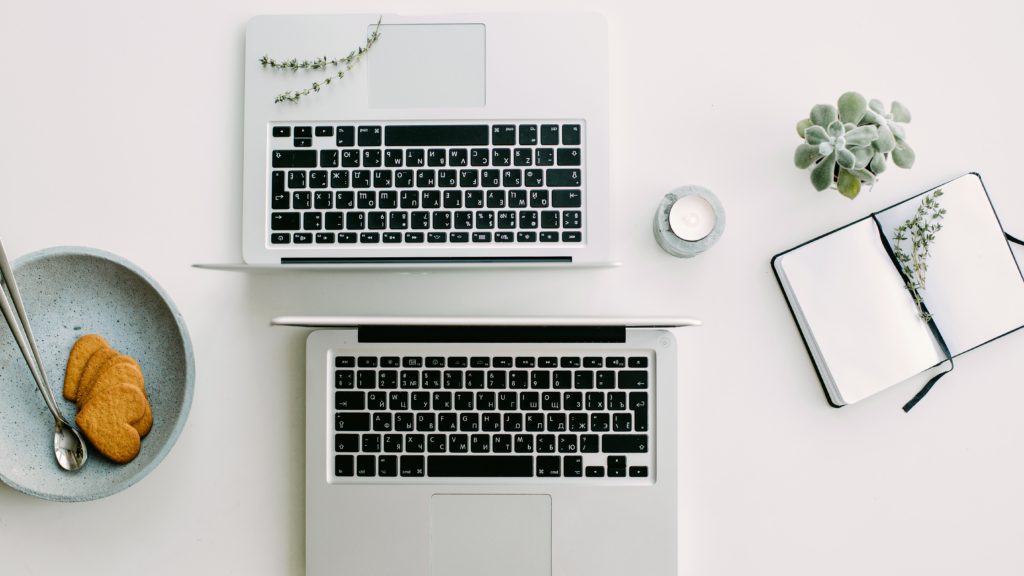
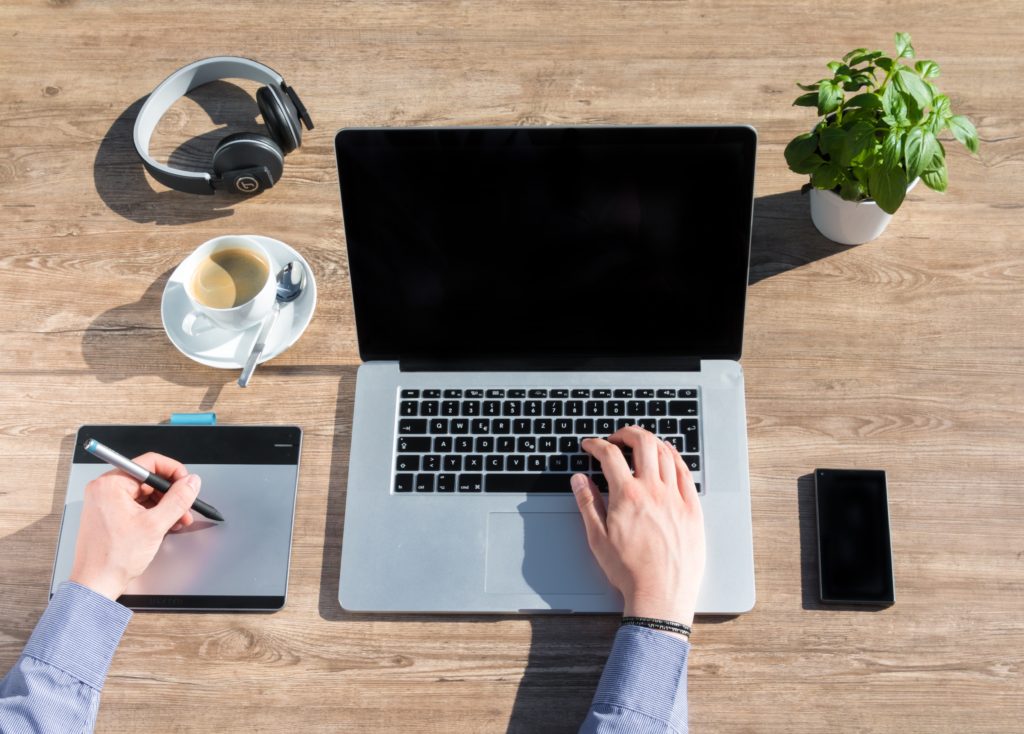
Some people believe that a good work session needs these "essentials": Coffee, music, colourful sticky notes, books arranged in a certain order, a candle, a plant, and perhaps some other accessories. Maybe you also want a bowl with nuts, some chocolate or some fruit to "keep you going". No. Not at all. The only thing you need to "keep you going" is... well, nothing. And that's what this tip is all about.
15 minutes into your work session, you feel that something isn't right. Maybe your once full cup of coffee is now an empty cup of coffee and you need to go and fill it up. Perhaps you would feel better if that empty plate of fruit is in the dishwasher instead of cluttering up your desk. Perhaps the music isn't right, or you're not sitting comfortably and want a different chair. Or perhaps: "Mmmm, it's probably time for that bowl of granola now..." No! It's probably NOT time for granola now. If you really need granola, have it before you start working.
The problem is that a lot of people are looking at all these things as essentials in order to work. But the truth is that real concentration and productivity does not come from any outer incentives, but from an intrinsic value of the work itself.
Have enough food before you start working so that you can keep going without feeling peckish after 15 minutes.
If you want to be good at concentrating, you have to find a way to get rid of your temptation for all these unnecessary incentives. Things that can be put inside your mouth and be swallowed is a real devil. Resist the temptation of needing a perfect workspace, otherwise, you might procrastinate too much and spend most of the time setting things up ready for work instead of actually doing the work. Of course, you can have a cup of coffee, but don't rush to make a new one as soon as the cup is empty. Remember what I said earlier: Notice what steals your concentration, and make an effort to remove those things from your desk or workspace.
It's fine if the chair is a little bit too low - you can always sort that out later. The fact that you're not using your favourite pen is not a good reason to not do the work that day. Get over it and just use another pen instead. There are many more days ahead of you where your favourite pen can be used. It's much better to accept that nothing is perfect and to stop being affected by all the annoying imperfect details around you. The world will never get less in the way for you. The answer to a productive life is all in your mind, so that's where the work has to happen.
Here is a phrase for you to take away: Separate what you want from what you need - wanting things is fine, but need nothing.
5. Meditate
If you want to take your ability to focus to the next level, meditation could be the answer.
The state you're in when you're meditating has a lot of similarities to the state you're in when you're concentrating on something.
A lot of people choose to meditate on a regular basis because they have realised that this is one of the most important things you can do to become more focused.
One of the many meditation techniques you can use involves having one single focus in your mind and block out everything else around you. This is exactly what you're trying to achieve when you're trying to focus on your work, isn't it?
If you want to try meditation, here is some advice that has worked for me.
1. First of all, find a relaxed position that is comfortable for you. My favourite position when meditating is semi supine (see picture below). I would recommend trying some different positions to see what works for you.
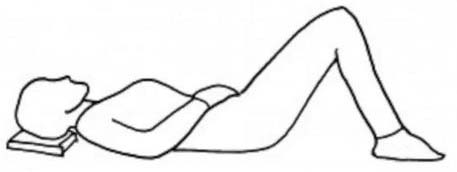
2. Put on a timer that counts down from 15 minutes.
3. Use the first couple of minutes from your meditation session to relax all your muscles and focus in on your breathing. Forget everything that you know about anything and imagine that the only thing that exists in the universe is you and your breath. Your breath acts as your point of focus, so try to think about your breath and nothing else.
4. The next step is to just sit there, relax and to have no thoughts other than an acknowledgement that you're breathing. You can try out different points of focus every time you're meditating. Sometimes try to imagine a physical object in your mind and observe it for 15 minutes.
An important note about meditation
A lot of people believe that meditation is about having a thought-free mind. This is partially true, but meditation is also about how you treat thoughts that enter your mind. When you get new random thoughts, don't think that you have failed and try to force them away. You haven't failed at all. Distracting thoughts will enter your head. It's inevitable. Your brain is wired that way. Don't try to stop new thoughts from coming. Instead, acknowledge that the have entered your head, and let them gently float away by itself. Just focus on your breathing and let any thoughts come and go as they want. The only thing you want to avoid is to start concentrating on the thoughts you get.
Over time, meditation will have an extremely positive effect on your concentration because you train your mind to be in a state of focus. I sometimes think of meditation as the ultimate tool to improve my level of focus and become less distracted.


